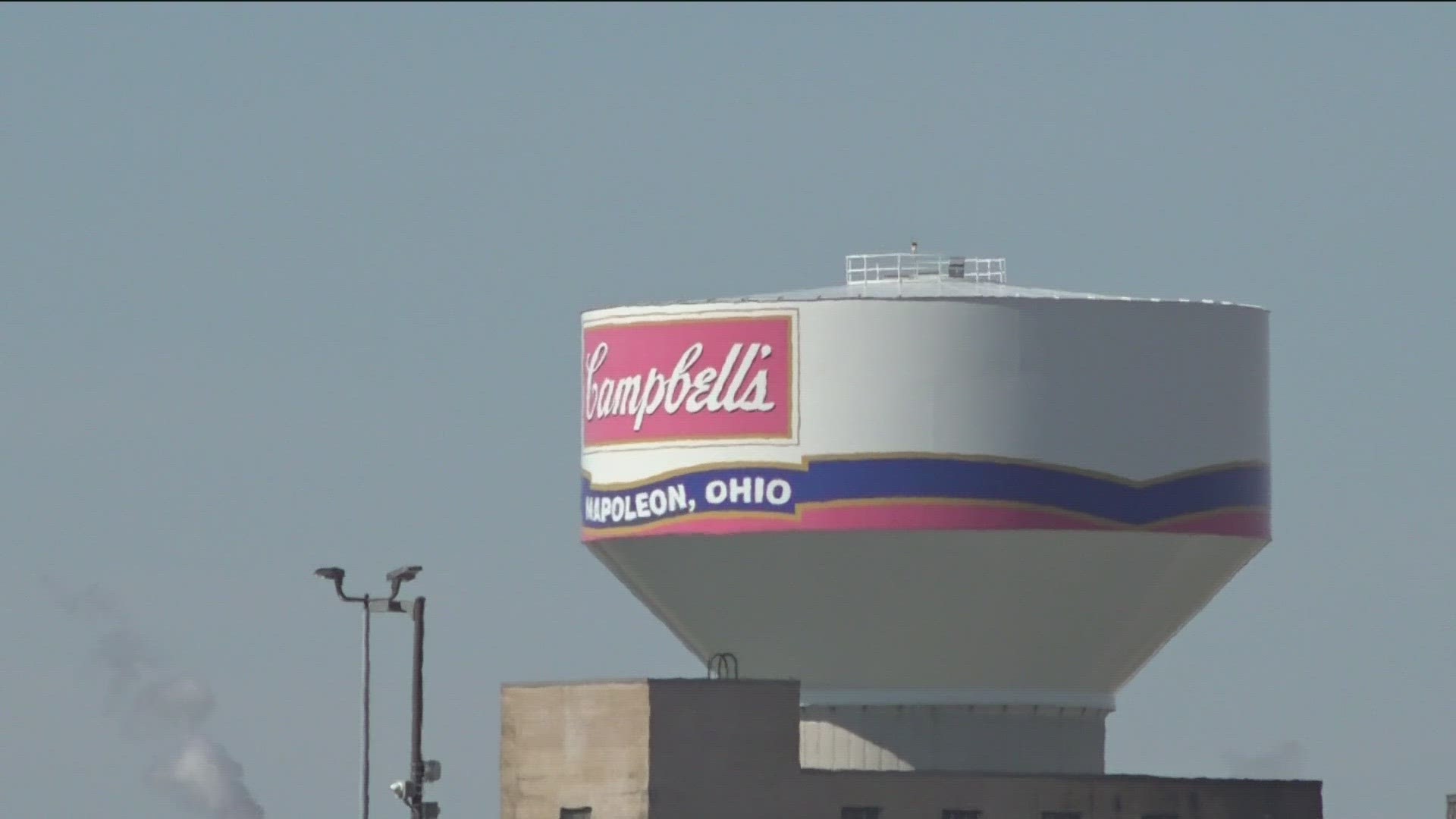NAPOLEON, Ohio —
Campbell Soup is facing two lawsuits, one from the Department of Justice on behalf of the U.S. Environmental Protection Agency and the other from the National Environmental Law Center on behalf of Environment America and Lake Erie Waterkeeper.
The groups claim the Campbell Soup facility in Napoleon has been polluting the Maumee River through excessive waste.
"The Campbell Soup plant that discharges into the Maumee River is one of the largest industrial sources of phosphorous with an actual permit to pollute," said John Rumpler, spokesperson for plaintiff Environment America.
Through the Clean Water Act, the facility has permits allowing it to put a certain amount of discharge into the Maumee River.
"They have been regularly dumping more of this phosphorous pollution into the river at its tributaries than their permit allows," Rumpler said.
Campbell Soup, based in Camden, N.J., regularly submitted records of what is discharged into the river to the state, according to Rumpler.
The Environmental Law and Policy Center reviewed these records and found between January of 2017 and March of 2021, the facility exceeded daily limits of pollutants on at least 146 occasions. It also found that the facility exceeded monthly limits on at least 53 occasions. Rumpler said the plant has been violating its discharge permits for the last five years, too.
Phosphorous and E. coli are some of the pollutants and can lead to algae blooms and health issues.
Campbell Soup is not the sole contributor of waste to the Maumee River. Rumpler said industrial agri-business, particularly large livestock operations, and the manure they generate are significant sources of nutrient pollution that lead to algal blooms.
The groups had been monitoring the Campbell situation and felt like it was time to take action.
"In the absence of any effective government enforcement actions to put an end to the violations, citizen groups from Ohio said 'Okay, we have to take matters in our own hands and end this problem,'" said Josh Kratka, senior attorney at the National Environmental Law Center.
When the groups started to take action, they found out the EPA was also monitoring the facility. They are now working together since July of last year with Campbell Soup regarding the discharge.
Campbell Soup released a statement that reads:
“We have taken a number of steps to improve our existing wastewater management operations and will continue to take immediate action to address this issue. We have retained independent experts to help implement short-term improvements and have capital investments planned to resolve this issue permanently. We take this matter seriously and will continue to work with regulators and other stakeholders to improve our operations and comply with all environmental regulations.”
Kratka said Campbell has made some short-term adjustments to address the issue. Negotiations are still being worked on, which would ensure Campbell Soup is no longer in violation of the permits. There is work being made on long-term changes to the wastewater management systems being used.
Part of the negotiations are a penalty for Campbell Soup, according to Kratka
There is no timeline for when negotiations will finish.

